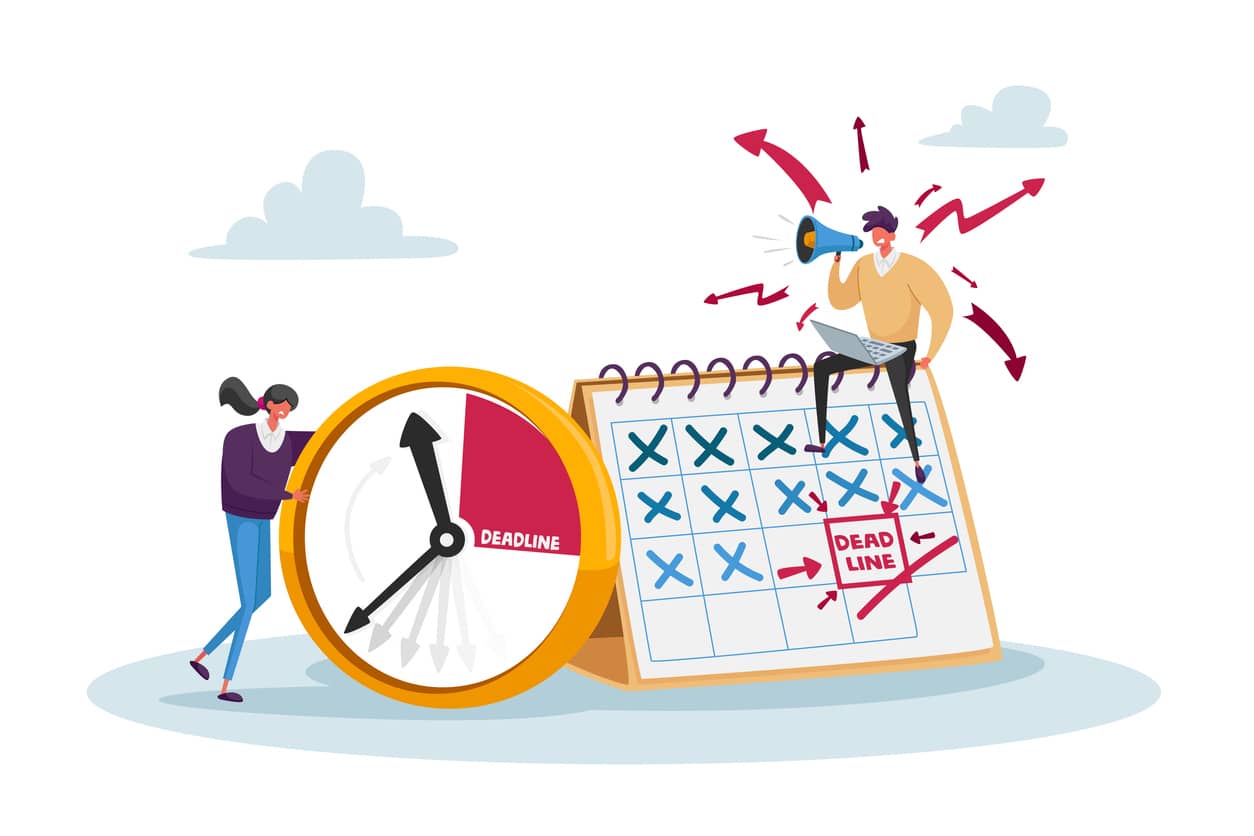The key to success in any business is building lasting relationships with clients. But what happens when managing clients takes up too much of your time and energy? The best way to nurture and grow your relationships with each client when you are strapped for time—especially during tax season—is to practice both efficient and effective client management.
Practicing effective client management skills will certainly improve your clients’ experiences with your accounting firm, but what exactly is client management? Essentially client management is the way you manage the working relationship with a client to ensure the highest quality of service and satisfaction. It includes discovering what the client needs from you and measuring how well you deliver on those needs. Using a combination of good communication and modern technology, such as excellent client management is well within reach.
Here are eight simple effective client management skills to practice:
1. Establish Preferred Communication
The first step in learning how to manage your client relationships efficiently is to establish a client’s preferred communication method. At your initial meeting with a client, be sure to ask what mode of communication works best for them and the best time to make contact. Your client will appreciate it if you show concern for their preferences. Plus, you're more likely to get a timely response and not have to keep asking them for the same information. Why keep emailing a client several times a week if they're likely to answer a phone call the first time?
It’s all about proactive communication and anticipating your client’s needs from the beginning.
2. Invest in Cloud-Based Accounting Software
Good accounting client management software includes client relationship management (CRM) capabilities. From organizing client information to automating follow up with clients, getting the right software is crucial for building your client relationships. CRM tools keep track of what’s happening with each client, when clients need to be contacted, and what’s ahead for a client’s case.
For example, with client management software like Canopy, you can get both a deep dive and a comprehensive overview of all your client’s information and information for the dependents they have listed. From one screen you can upload a file, add a task, add a note, and update contact and dependent information. Anyone on your team can view a client profile and be up to speed on that client within minutes.
3. Always Follow Up
When managing clients, it’s important to make following up part of a routine rather than something that's only done when trying to close a deal. Whatever the reason for doing follow-up, make sure it's automated. It takes time to create and send new emails every time you need to follow up with a client. If you use a CRM tool, you may be able to automate follow-up so the software will do it for you. You could potentially schedule all of a client's follow-up in one sitting and not have to revisit again for the week.
Canopy will send automated reminders and requests to your clients as often as you choose. Additionally, users can now further automate their firm thanks to workflow automation for tasks and subtasks. Investing in this type of software may be an additional cost, but the time you'll save will be invaluable as you grow your firm and have more clients to manage.
4. Manage Client Expectations
When managing client expectations, the more your client knows what to expect from the work you’ll be doing on their case, the less they’ll be concerned with contacting you just to check in. The more proactive you are with setting expectations, the less your clients will try to get away with behavior that pushes the limits of what’s acceptable in your working relationship.
If a client continually disregards your expectations, consider stopping casework for a time. For example, if you’ve requested forms from a client, give them a deadline for when those forms must be in and stop work on the case until you receive all needed forms. Managing client expectations requires a working relationship that goes both ways.
5. Schedule Client Management Tasks Weekly
For the sake of staying organized and time-efficient, set aside time weekly where you schedule your client management tasks for the week to review each of your cases and decide what you can do to make each client’s experience with your firm the best it can be. During this uninterrupted time, focus on what each client needs from you that week. Do you have follow-ups to conduct, or are there several clients you need to call back? These and other tasks can be planned out for the week, so you stay organized and efficient.
Additionally, after you've implemented client management into your schedule, treat it as a hard deadline. When the time comes to complete the tasks you've scheduled, don't put them off for other work. Nurturing your relationships with clients is just as important as other work you do, and will help with managing client expectations for future interactions.
6. Utilize Client Portals
Clients love client portals, and you will too. Client collaboration is the most significant function of a client portal. By using a client portal, you and your client can securely send each other files, notes, requests, and questions at the click of a button. No more unanswered emails getting lost in your client’s inbox. No more faxing documents. And no more waiting for your client to visit your office and hand important papers to you directly. With their portal, your client can simply send you any necessary documents from anywhere they have internet access.
Additionally, client portals often offer payment functionality, and clients will be more likely to pay you in a timely manner if they can pay you online.
The transparency that comes along with client portals leads to improved client management. The more a client can see what you're doing on their case, the less you're calling, emailing, and meeting with them to answer questions. This leaves you with more time to complete work on their case.
Using a client portal doesn’t mean you won’t ever need to call clients or meet them in person, but it does make communication more efficient and keeps casework moving.
7. Know When to Say "No"
Sometimes a client requests a service that is not what's most practical or best for their casework. Rather than spending your time, and your client's money, on work you know isn't going to turn out to be very fruitful, learn to say no to clients.
Of course, in the interest of client retention, you need to say no the right way. Whenever you turn down a client's request, be honest and upfront and it can often help to offer a different solution and explain why it will be more beneficial to them.
If you can’t offer a solution for them within your firm, you may consider referring them to a different firm you have a good relationship with for that particular service.
8. Work Smarter, Not Harder
It’s all too easy to commit to practicing more efficient and effective client management skills but get overwhelmed when it comes to execution. It makes more sense to work smarter, not harder. Along with setting time aside to schedule your week, also set aside time each day to complete tasks using the best tools at your disposal. Once you work efficient client management into your routine, it will come more naturally and take less of your time.
Develop effective Client Management Skills With Client Management Software
If you’re looking to implement these best practices for efficient client management with your clients, start by investing in an accounting practice management software like Canopy. Not only will Canopy help you keep track of all your client information and keep it secure, but your clients will also have access to a client portal that makes collaboration even easier. They’ll be able to sign engagement letters, share files, make payments, and more.
Learn more about how our CRM features can add value to your firm and help you improve in developing effective client management skills!









Get Our Latest Updates and News by Subscribing.
Join our email list for offers, and industry leading articles and content.